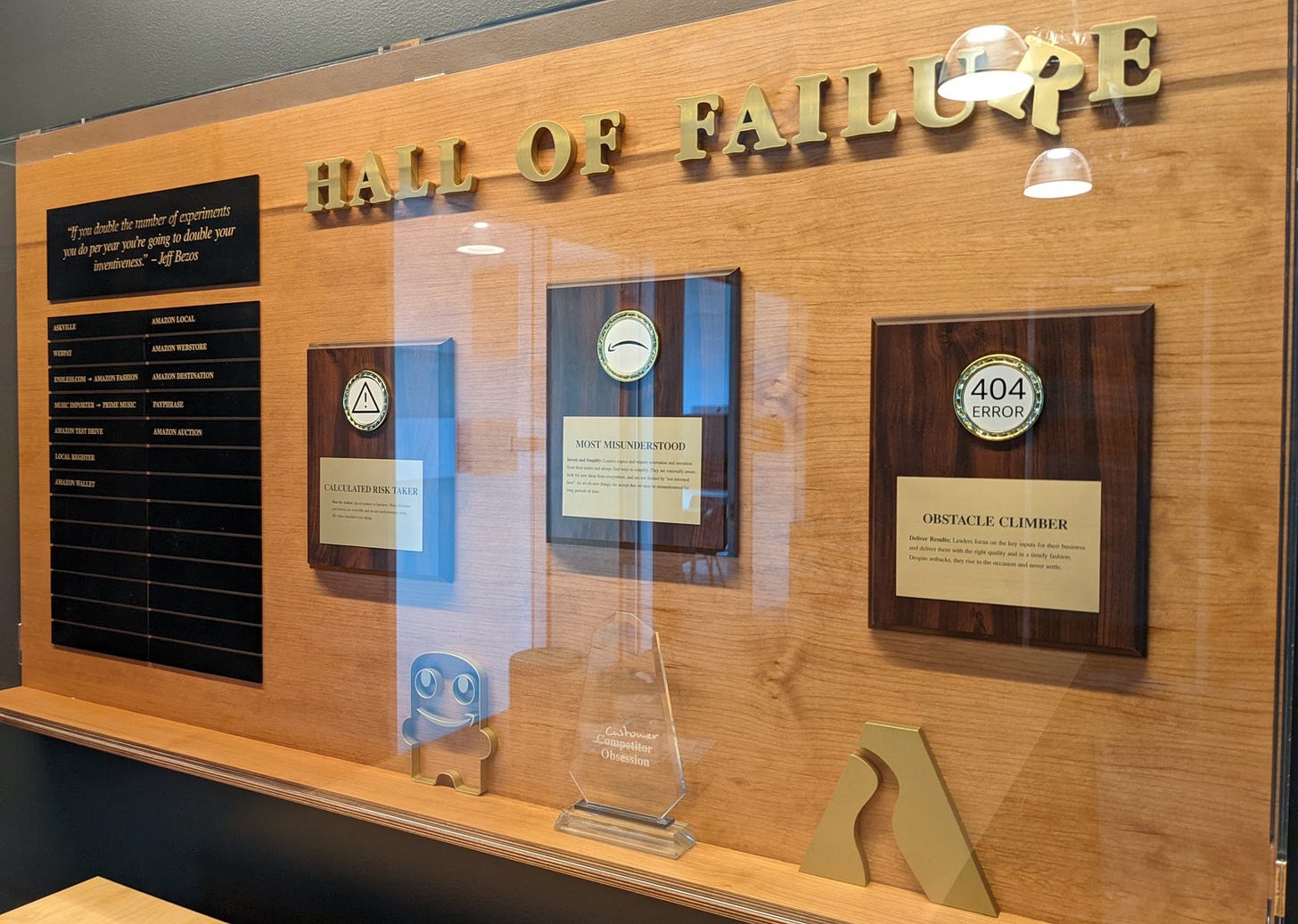Pour One Out for Stack Overflow
With the passing of Job and Dev Stories, it's the passing of an era
What were the movies you watched growing up that defined your youth? If you are the typical tech geek, you might hear something from the sci-fi genre, superhero movies series, or horror flicks.
Then there were the movies that friends in my neighborhood in Brooklyn liked. For those of us in the inner city, that movie was Boyz in da Hood. It was a coming of age story of youths in South Central Los Angeles starring Ice Cube, Cuba Gooding Jr., and Laurence Fishburne. It was gritty, in your face, and felt like it was real.
With all that goes on in the movie, there was one short clip often overlooked. Right before the credits, Ice Cube pours out the contents of his drink on the ground as he walks away. This was symbolic of paying respects to one of the characters in the film that was killed.
This act of pouring out a drink for those that died would be popularized in culture by the rapper 2Pac. In his song and video for “Pour Out a Little Liquor”, you see 2Pac and others pouring out 40’s (bottles of malt liquor) over a grave. What most people never knew was this had been done for thousands of years.
Sometimes known as the “pouring of libations'', the first known historic evidence of this ritual was found in the scrolls of the ancient Egyptians. Across the Abramabic religions, there was the common practice of pouring out drink offerings to God upon an altar. This practice continued on through Greek and Roman times as well as in the Eastern worlds across India, China, and Japan using different liquids and rituals.
Now you might be wondering if something happened to Stack Overflow from the title of this post. Did Stack Overflow moderators go on strike? Have they stopped business operations? Has a rogue employee pulled the plug on their data center?
None of the above. In many ways, Stack Overflow is in a better place today. They were acquired last year by the Dutch conglomerate Prosus for $1.8 billion. That in turn minted 61 new millionaires (though not me sadly). However, the Stack Overflow for Teams business that I helped launch back in 2016 is bigger than ever.
This is why I am so sad to announce that I must pour one out for Stack Overflow. It was a good three years I spent there. I have fond memories of the times and tears and free lunches in the NYC office. But all good things must come to an end, and so too does the Stack Overflow many of us knew and loved.
“Pour out a little liquor, give respect to those that’s gone but not forgotten.” - 2Pac
Nearly a month ago, it was announced over Meta that Stack Overflow would be sunsetting the Jobs, Developer Story, and Salary Calculator products. Meta is the Stack Overflow site for questions about Stack Overflow, where many moderators and superusers actively comment. As expected, the community did not take this news favorably.
“I've been on both sides of the SO Jobs thing and really liked both. I think this is a loss to the development community at large.” - Andy, Stack Overflow Moderator
When I joined Stack Overflow, the main revenue source was the Jobs product. The product hit at a core challenge in the industry, companies needing better tools and candidates for sourcing developers. Jobs allowed developers to find job openings, and let recruiters search for candidates on Stack Overflow through targeted job postings or direct searches of users that opted-into being contacted.
Unfortunately, that product hit an upper limit for growth. Unlike a SaaS business, a media company (job postings) does not have the same growth multiples unless you can hit massive scale. This is why the likes of LinkedIn and Indeed can succeed, they go wide and have massive reach. With large corporate coffers as public companies (Indeed is part of a bigger Japanese human resources firm Recruit Holdings), they can also invest in better products and tools for their core audiences, which are recruiters.
Even having the global mindshare of the developer community and over 50 million monthly unique visitors to Stack Overflow was not enough to compensate. Between the gap in tooling, being overshadowed by larger competitors, and a disastrous shift to an annual subscription model, the business hit a ceiling.
The reckoning came in 2017 when the company issued its first ever layoffs. While the Talent business stalled, the Stack Overflow Enterprise (and later Teams) product started minting cash. As we brought in bigger names, million dollar plus deals, and crossed the $10 million ARR mark, it was clear that the Talent business was no longer strategic. Stack Overflow was going to triple down on the SaaS Q&A product.
That same year also saw the death of two products. The attempt at building the Stack Overflow for long-form content, called Stack Overflow Documentation, finally came to an end. They also shuttered Stack Overflow Insights, a service that provided data analysis of Stack Overflow and recruiting data to corporations.
Building products is messy. Building multiple products at the same time in a small company is exponentially messier. Coming into 2018, there were three core products; Talent which was still over 60% of total revenue, Ads which contributed 25%, and a fast growing Teams segment that now had both Enterprise and self-service Teams versions for different sized organizations.
It was clear something had to give. The result was a new CEO in late 2019, then a strategy announcement that put SaaS ahead of other businesses, and then added rounds of funding that eventually led Stack Overflow to the acquisition table. Yes, I did a lot of hand-wavy things fast-forwarding events, but the point was that there was only one path that would lead to a positive exit for a VC-backed, 13 year-old startup.
Nowadays we see companies go from zero to Unicorn in less than a handful of years. What you hear less about is the hard slog, missteps, and multiple pivots to get to the right product. I felt the Talent business could have had legs as the need is there for a better candidate experience for developers and a higher quality, focused talent pool for corporate recruiters. To succeed though would have required more resources, more product discipline, and acquiring products to fill in the gaps to create a more comprehensive and compelling solution for enterprises.
The companies that win the innovation game are the ones that have focus. Stack Overflow went through various iterations to find a scalable business model. The first attempt was a SaaS product to let anyone host a public Q&A site for $200 per month. It failed miserably and the few survivors became the first Stack Exchange sites.
The Talent product also went through various stages. It started as Careers that was a completely separate site. Then it eventually became integrated fully into Stack Overflow as the experience developers know today. It was not till year eight of the company that a more sound SaaS offering was conceived and would finally become the business model that would allow Stack to grow.
The last day of March will be the passing of the old Stack Overflow. The new focus will be good as the core SaaS offering is a mature product and a much needed solution for engineering teams. I am less confident in their new offerings like Collectives which adds zero value to companies. On the whole though, companies need to take those swings and accept the misses. At Amazon, we even celebrate these misses on our Hall of Failure.
Hopefully you enjoyed this journey into a bit of Stack Overflow history. Now that the job board is going away, what are going to be your go to places to source top engineering talent? Here is one helpful Twitter thread on developer job boards that might help you!
Mark Birch, Editor & Founder of DEV.BIZ.OPS
P.S I am going to be in Seattle next week, so ping me if you are in town and want to meet up in person!
Want to learn more about DEVBIZOPS and read more hot takes about IT, technology, and working smarter. Receive our weekly newsletter by signing up to our Substack!







